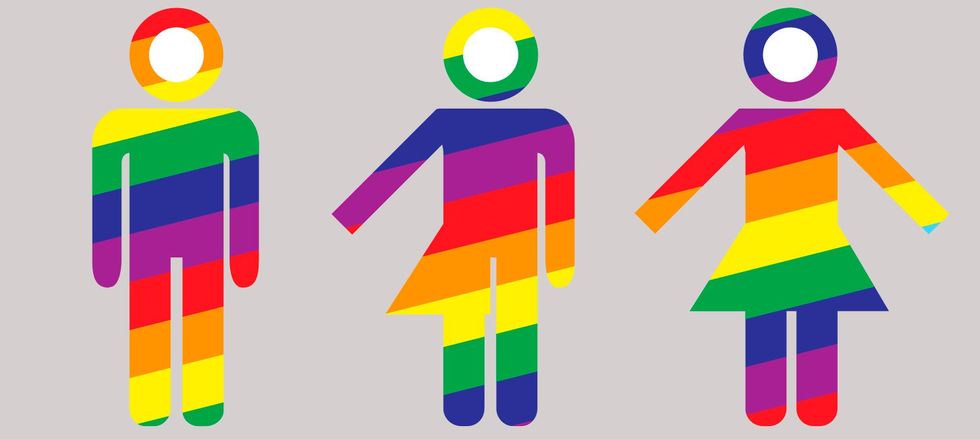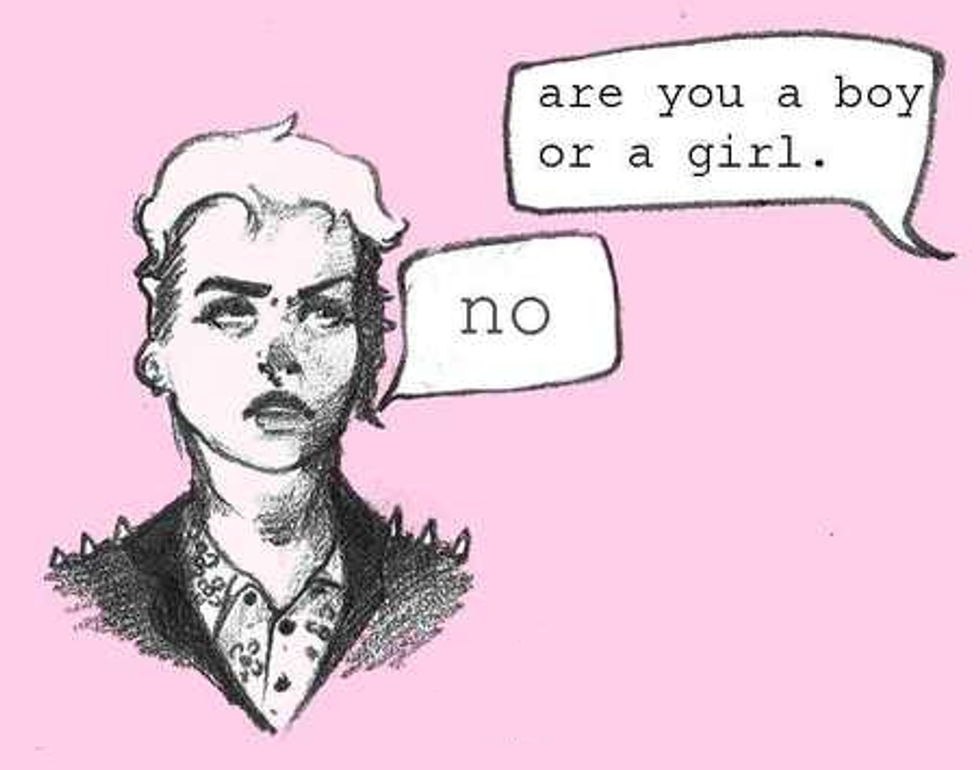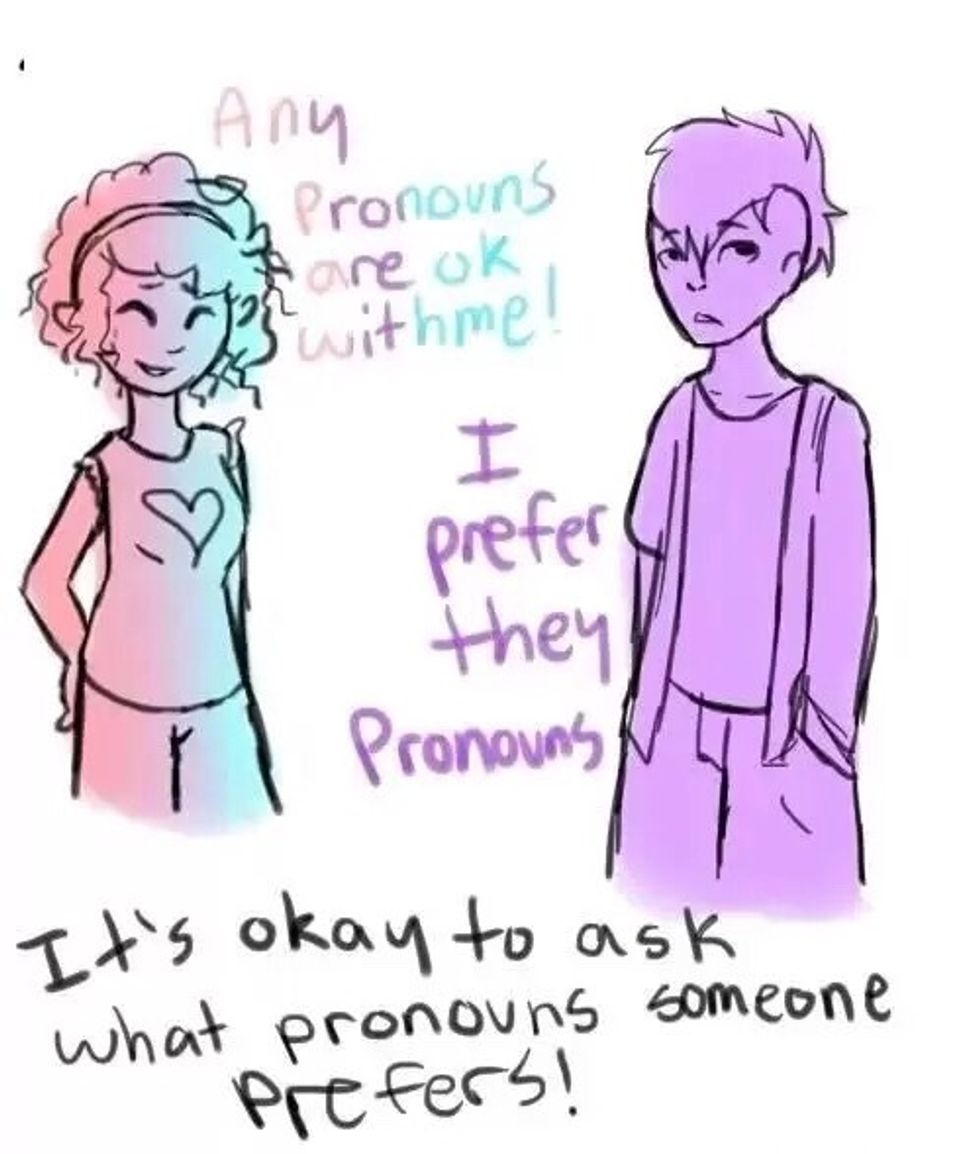"What’s your pronoun?"
Recently, I was asked this question. I didn’t know what the heck they were talking about. I knew what a noun was, but other than that, I had no clue what they meant.
Let me back up…I was at my sister’s launch party for her company www.pyramidseven.com, underwear (briefs) made for people with periods, regardless of gender. If you’d like a pair, please visit the site!
Anyway, there were all types of people there: girls, boys, transwomen, transmen. But the thing is, not everybody went by female or male, or even trans; some went by certain pronouns like he, she, her, him, them, it, we, who, or even just their names or a letter, etc. (please note that these are not the only pronouns). To give you a clear definition of what a pronoun is, it is "a gender neutral or gender inclusive pronoun which does not associate a gender with the individual" (Gender Pronouns, 2017).
I had never heard of a pronoun used in this context. On some level I knew of this, but I didn’t know much of it. My first time ever hearing about it was through my friend, Alison. Within the last few years “she” told me she wanted to be referred to as “E” (which is a gender neutral name). Also, she was no longer a she. “She” went by a pronoun. I can’t remember which pronoun, but I was to refer to “her” as E, which wasn’t hard, but at the same time not easy because I had known “Alison” since 7th grade. I think for anyone that change would be hard. I always have to tell myself, "Remember to say “E” and not Allison." Now E is a transman who uses the pronouns he and him. His name is now Edward. I don’t see Edward often, so I rarely thought of these pronouns until recently.
But back to the original story: when one of my sister’s associates asked me, I was so caught off guard and embarrassed.
Why? Because during that evening, I referred to so many people as hers and he's, not knowing if I offended them, or made them feel weird about it. And no one corrected me, either, which in my mind, makes it worse that they didn’t feel comfortable to let me know I was incorrect. I also felt like a fool because it was something that I didn’t really know much about. So I took the opportunity to learn more about it. Which I think all people would benefit from (if you don’t understand something, take the time to learn about it). It’s the only way things will get better.
I also decided that I would start asking people what their pronouns were, or what they would prefer to be called by. I think everyone should try this instead of assuming that this person wants to be called a he or she. You know what they say about assuming; it makes an ass out of you and me. So ask what they prefer.
I think we should be open to change, and to who people are, and who they want to be. There’s always that pressure that you might offend them or embarrass yourself. Just simply apologize and correct yourself, take the time and opportunity to learn more by asking questions if you don’t understand.
So ask, "What is your preferred gender pronoun?"
"Gender Pronouns." LGBT Resource Center. University of Wisconsin-Milwaukee, 2017. Web. 22 July 2017.






















